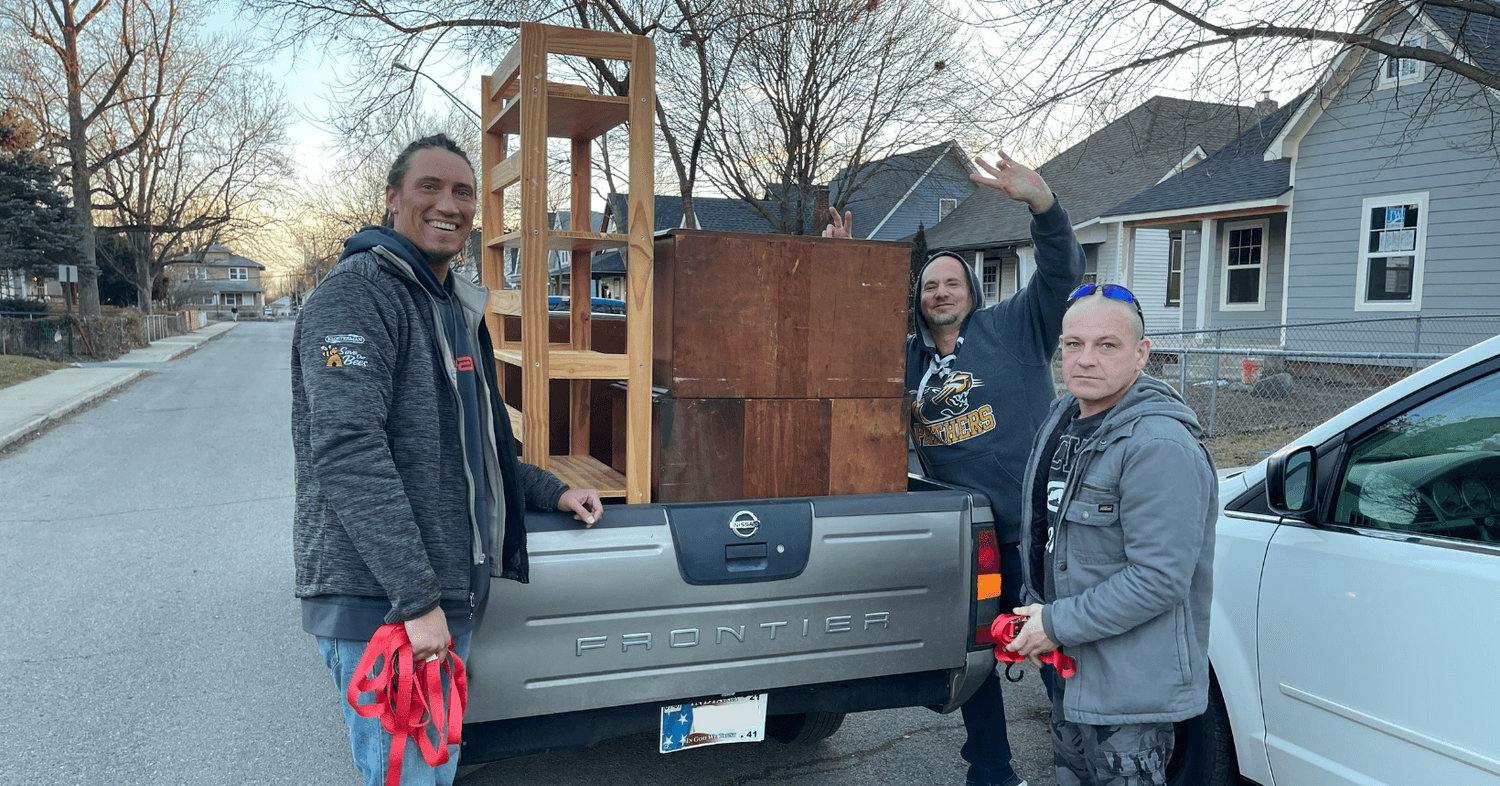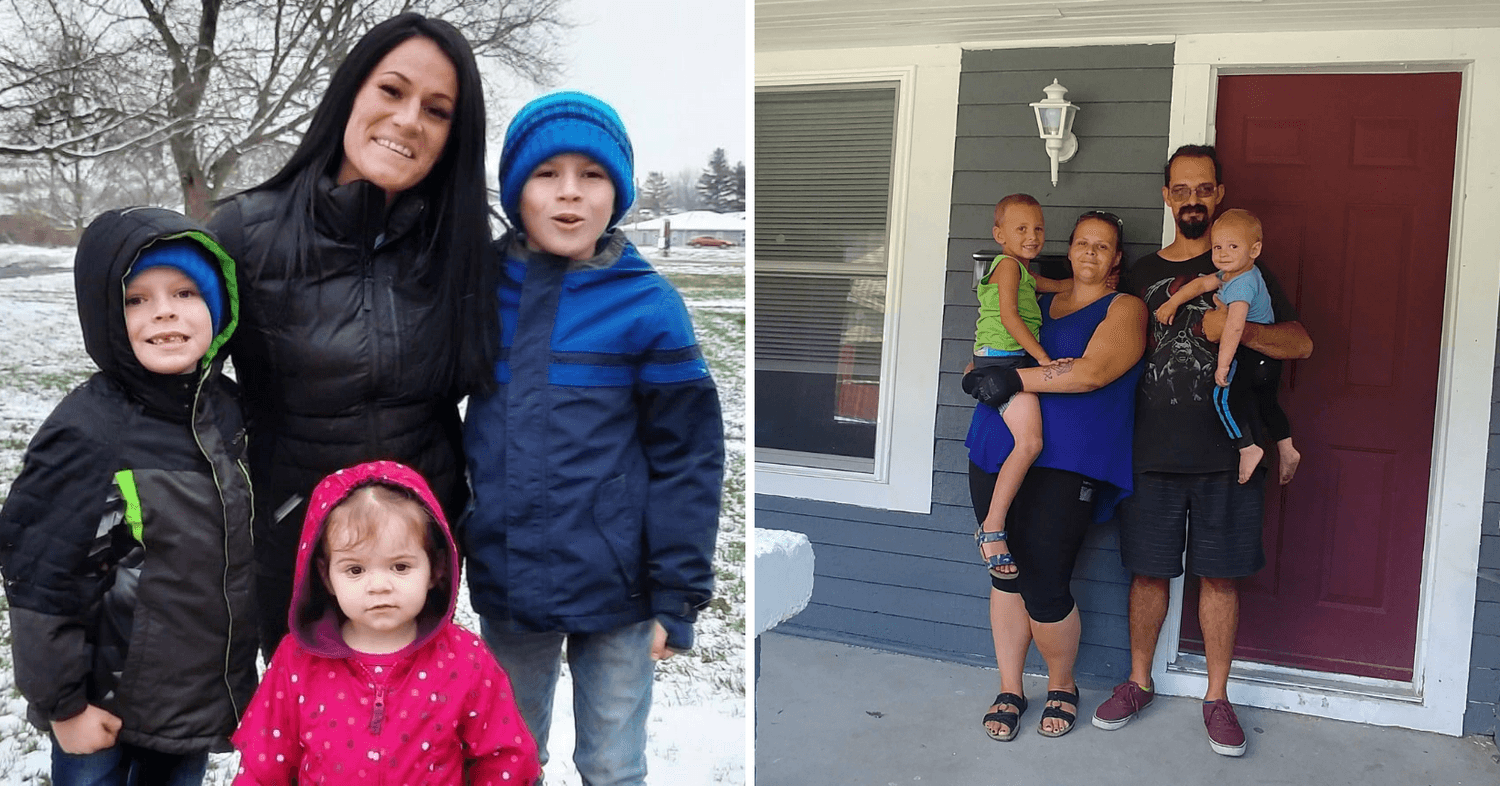The F.C. Tucker Giving Circle was established to give agents and staff the opportunity to pool their donations as a group, nominate worthy local philanthropic organizations for funding and then vote on which organizations to support. For 2021 funding, 33 incredible organizations applied and agents and staff selected nine to receive a combined $81,000 in grants.
Each month, we’ll feature one of the nine organizations to learn more about the amazing work they do in our communities.



Getting to Know Oxford House
What population of people and geographic area does your organization serve?
State of Indiana, individuals with substance use disorder
What is the story of your organization’s founding?
In October 1975, the first Oxford House™ was opened in Silver Spring, Maryland, by a group of recovering alcoholics and drug addicts, who had been living in a county government run halfway house. Each of them had been clean and sober for but a short period of time when they learned that the halfway house was to be closed. Each of them was fearful that he would return to alcoholic drinking or drug use without the support of living in a group committed to staying sober and clean.
When the news reached them that the halfway house was going to be closed, their first reaction was one of anger, resentment and panic. They had known that the halfway house had a “six month rule” which required an individual to move out after six months to make room for a newcomer. As a matter of fact, during their tenure in the halfway house, they had watched 12 men move out at the end of six months. Eleven of the 12 had returned to drinking or using drugs within a month. That fact only added to the fears and insecurity they felt upon learning that the house they lived in would be closed and they all would have to move within thirty days. A private individual, a member of Alcoholics Anonymous, held the lease on the house the county was closing. Several of the men faced with eviction approached him to see if there was some way the county could be convinced to change its decision. He felt such a change of heart was impossible. It was a matter of economics. County halfway houses cost a lot of money to run. The county budget was tight and Alpha I, as the halfway house was named, would definitely be closed. He then asked if the men had given any thought to taking over the house themselves.
Over the next several days, hope began to replace the despair shared by the men but a number of obstacles stood between the ideas of taking over the house themselves and the reality of being able to do it. Where would they get the money? All of them had drunk themselves out of good jobs and few of them had done more than day work since getting sober. How could they pay for the rent, the utilities, the food and a counselor to manage a halfway house? Who could they find to run the house, even if they could come up with the money? Day and night they discussed the possibilities among themselves and went to a lot of AA meetings in order to get the advice of AA members. Time and again AA members gave them encouragement. “Just don’t drink,” they heard over and over again. “Keep it simple” and “Remember–a day at a time,” were offered as advice almost as frequently. Slowly an idea began to form that maybe it could be done.
The first task involved studying the costs of the halfway house to determine how much money was needed. The largest single cost was the paid manager, cook and counselor attached to the house. Someone suggested maybe they could live without a paid manager or cook or counselor. But who would be the supervisor or manager if they did not have a paid manager who lived in the house? Of all the men to live in the new house, only one had gained six months of sobriety. The men decided that the cost of a manager, cook and counselor was too great. If there were going to be any chance of maintaining the house, a way would have to be found to learn how to stay sober and manage a house without a paid staff. One man recalled that he had lived in a college fraternity with sixteen men that did not have a paid manager. Of course there had been no requirement of not drinking in that house. As the men talked about the fraternity house concept, fear of being able to enforce sobriety without the presence of a paid authority figure became the heart of the matter. They had been without real responsibility for so long there was considerable doubt about whether or not they could act responsibly as a group.
As discussions centered on whether or not they could run a house themselves, talk would inevitably drift into complaints about the halfway house way of life. There were a lot of rules. Lights out at eleven o’clock at night. Everybody up at six in the morning. Breakfast at exactly seven o’clock. Table setting, dishwashing, vacuuming, trash removal, bed making – all specific assignments to be done at a specific time and in a particular way. Any suggested changes to the rigid routine were dismissed with a lecture and a warning to shape up or ship out. As much as the residents of the halfway house resented the arbitrary rules, the fear of having no place to live was even greater. After days and days of discussions an organizational plan began to evolve which gave the group the confidence they needed to give it a try. Their experiences in the halfway house – both positive and negative – helped them develop an organization to carry the responsibilities for which the manager, cook and counselor had been responsible for in the county halfway house. And so, the Oxford House concept began to take form.



What one thing most surprises people about your organization?
Addicts and Alcoholics, when they are no longer using substances, are extremely great neighbors and productive members of society. Neighbors are often scared when a house opens in the neighborhood and are pleasantly surprised when we end as the best house on the street.
What are recipients of your services saying about your organization?
“My name is Lisa Reed and I moved into Oxford House Abbeywood on December 9th, 2019. My sobriety date is June 22, 2019. I recently moved to Oxford House Ginsburg as a core member to help train new women moving into the Chapter’s newest house. Before moving into Oxford House, I had been incarcerated for one year and my program Director suggested that submit an application to Oxford House. I had nowhere to go. Not shortly after submitting my application my Outreach Worker showed up to that County Jail. She told me all about Oxford House and I knew at that moment that if it worked for her, it could possibly work for me. Oxford House Abbeywood gave me a voice and taught me how to stand up for myself. It helped me build a sisterhood of women that I can count on. I know how to hold others and myself accountable today. Without Oxford House, I don’t know if I could have stayed sober during the pandemic. Although the world was shut down, I wasn’t living in isolation. Through the tools learned in Oxford House and my own personal recovery, I am now a support tech at Wooded Glen Treatment Center. I’m forever in debt to the organization that showed me a new way of life.”



If people want to volunteer with your organization, what is their next step?
Contact our Outreach Staff via Amy Collins at 812-318-4727.
For more information, please visit www.oxfordhousein.org.



